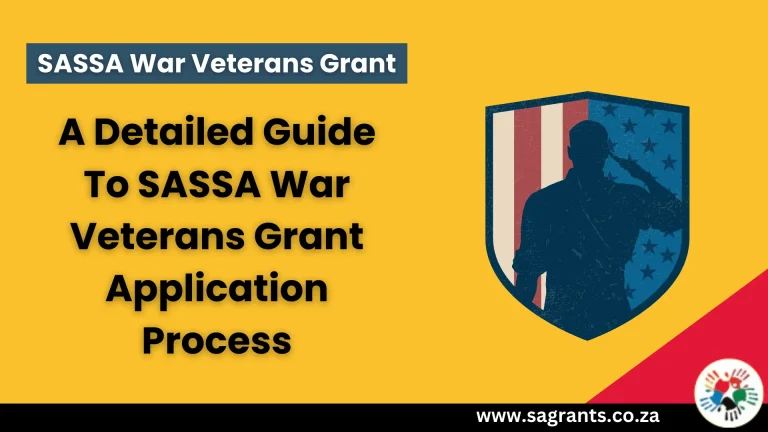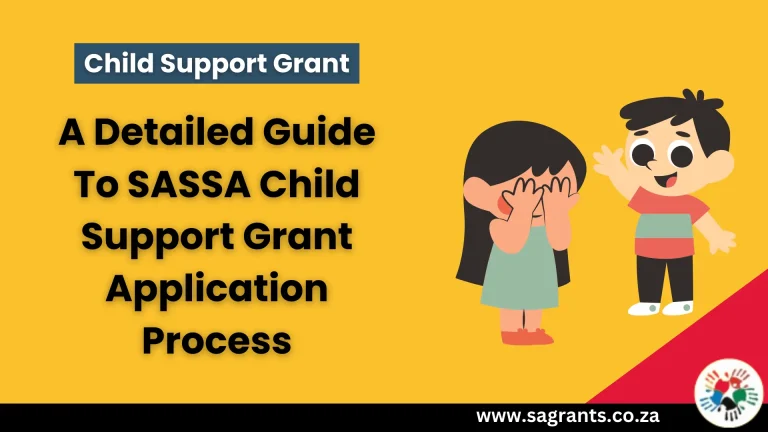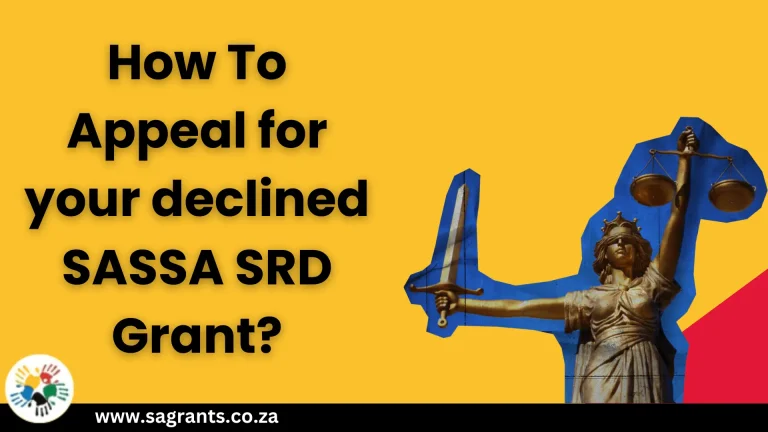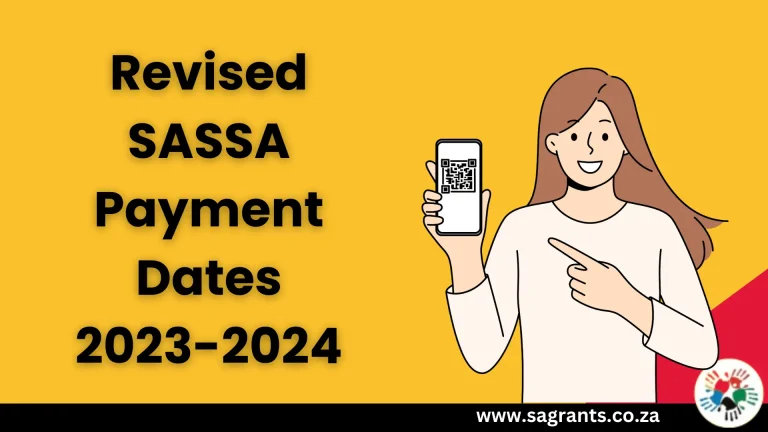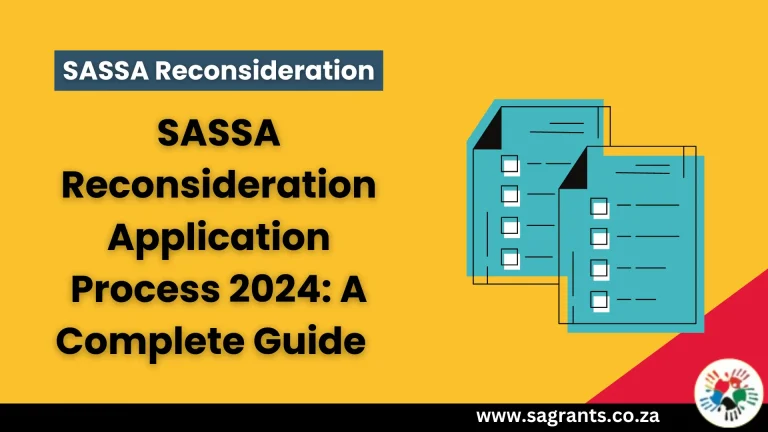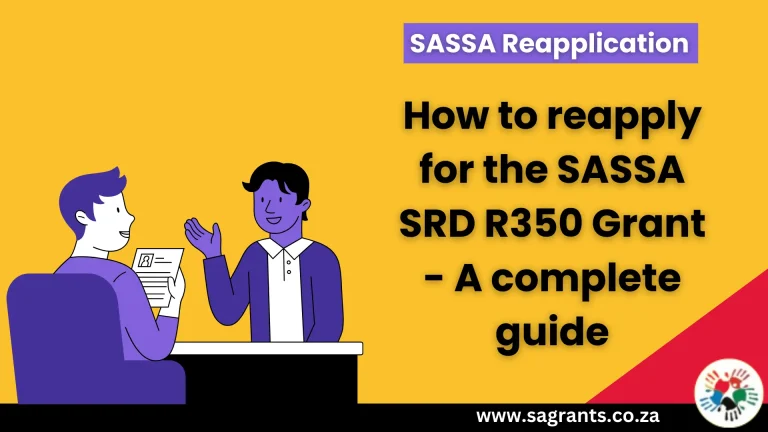SASSA Foster Child Grant [2024] – A Complete Application Process
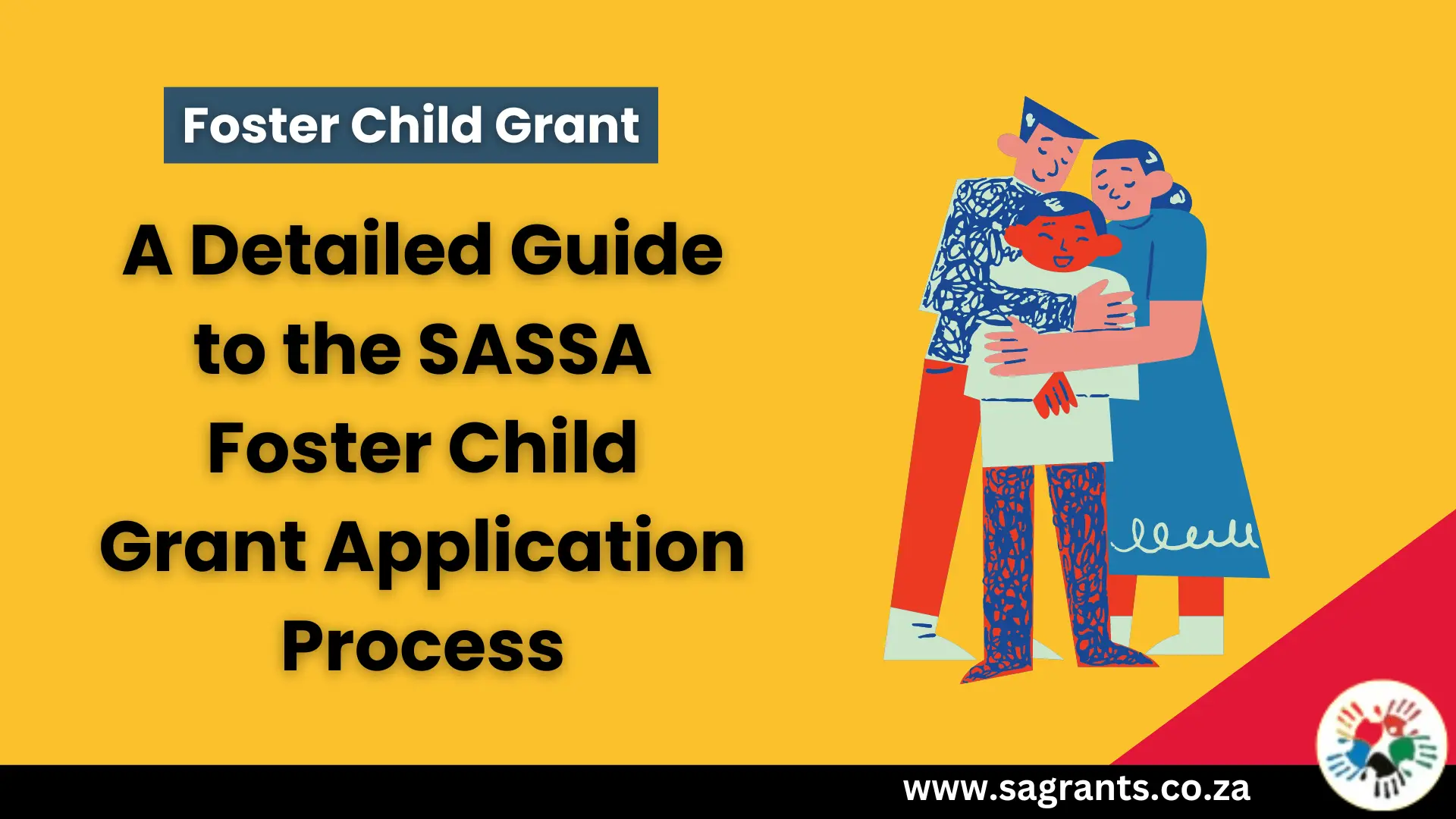
As per the South African Child Care Act, a foster child is a child who is removed from their parents and legally placed in the care of foster parents. If you are appointed as a foster parent, you can get a foster child grant (also known as a child care grant), a monthly payment provided by the government of South Africa to the foster parents to take care of a foster child.
A foster child is a child who has been placed in the custody of foster parents by a court as a result of being abandoned, orphaned, at risk, abused, or neglected. Foster parents are responsible for providing all the basic needs of their foster child, including food, shelter, medical care, clothing, and education.
You, as a foster parent, will get the grant only for poor children whose financial situation is below a certain level. This will be decided by a test called the means test. This grant will be paid until the child turns 18 years old. The grant will be stopped if the child leaves the school or is earning more money than defined in a means test.
If the child is turning 18 years old but is still in secondary or high school, this grant will be paid out until the end of the year in which the child turns 21 years old. Let’s dive deep into the eligibility requirements and the complete application process.
SASSA Foster Child Grant Eligibility Criteria
The foster child grant will be paid only if you are legally appointed foster parents by the court. You must fulfill the following eligibility requirements to apply for this grant:
How much is the SASSA Foster Child Grant?
From October 1, 2023, the grant amount for the foster child grant is increased to R1 130 per child per month. Before that, the grant amount was R1 120. The grant amount for a child is generally increased every six months. So that the basic needs of children get fulfilled. It is expected that the foster child grant will increase by R10 from April 1, 2024.
Generally, the grant amount increases after the national budget, and it is declared by the parliament in the national budget speech.
How do I apply for the SASSA Foster Child Grant?
You cannot apply for a child support grant without a legal court order. So first, get a court order that confirms you as the foster parent of a child. Contact and make an appointment with a social worker from the nearest Department of Social Development office. They will issue a court order confirming that you are the legal foster parent of a child.
Once you get the court order, you can apply for a foster child grant. Visit your nearest SASSA local office. There, you will get the application form. If you are too sick or old and unable to visit the SASSA office, then you can ask your family members or friends to visit the SASSA office on your behalf and apply.
The application form must be completed in the presence of an officer from SASSA. So if you face any difficulty with the application form, the SASSA officer will assist you in completing it. An officer will also take your interview and will inform you if you qualify for the grant.
If someone is applying on your behalf, they must fill out the power of attorney form and get it attested by the Commissioner of Oaths. They should bring this signed and attested power of attorney form and doctor’s note when visiting the SASSA office.
You can also apply for the foster child grant online by following the instructions given on the SASSA services website. When your application is completed, you will receive a dated stamped receipt bearing the name of the SASSA official who assisted you. Keep this receipt with you, as it is the only proof of your application. You don’t have to pay any money to apply.
Documents Required for Foster Child Grant Applications
Along with the application form, you must submit some documents as proof. So when you visit the SASSA office, remember to bring the following documents with you:
How much time does it take to process the SASSA foster child grant application?
Once your application is submitted to SASSA, it is sent for review. SASSA takes 30 days to 3 months to process your foster child grant application. To receive the grant payment, your application must be approved. You will get paid the foster child grant from the date you applied.
If your application gets rejected by SASSA, they will provide a written explanation of why it was rejected. If you are unhappy about this decision, then you can submit an appeal to the Department of Social Development.
How do I check the SASSA Foster Child Grant Status?
Once your application is submitted, you must stay updated with your application to receive the grant payment successfully. For that, you should regularly check your application status. You can check it using the SASSA status check online tool, or you can visit the SASSA services website. You can also use the following methods to check the application’s status:
What should I do if my child support grant application is declined by SASSA?
If you fail to meet the eligibility criteria or are found to be engaging in any fraudulent activities, then SASSA will decline your application. If you are unhappy with the SASSA’s decision and don’t agree with it, then you can request that the SASSA reconsider your application. If they don’t reconsider your application, then you can submit an appeal.
This appeal must be submitted to the ITSAA committee within 90 days of receiving notification. ITSAA is a concerned body of the Department of Social Development that processes appeals. If you don’t know how this process works, then contact the local SASSA office. The officials at the SASSA office will guide you through the complete process.
After you submit the appeal, the ITSAA committee will review your foster child grant application. If the committee finds you eligible for the grant, then they will reverse the SASSA’s decision, and you will start to receive the grant payments. If they don’t agree, then your appeal will be rejected.
Payment Process for the SASSA Foster Child Grant
The payment dates for the SASSA foster child grant are not fixed. SASSA releases the payment schedule at the end of the previous month. You will receive the foster child grant payment only if your application is approved. The grant is paid from the date you applied.
There are three methods that you can use to receive your foster child grant. You can choose from any of the following methods:
You must give your consent to receive the money in your bank account. For that, you need to submit the SASSA bank account consent form along with the following documents:
- An Identity document or birth certificate as proof of your identity.
- The bank account number is registered in your name.
- Last 3 months’ bank statement that clearly shows your name and account number.
If, in the initial application process, you shared another person’s bank account details, change your new bank details as soon as possible. Otherwise, your grant payment will be stopped. You will receive the money in a new account in the next month after the completion of verification. You can also appoint your family members or friends to collect the grant on your behalf.
How do I check the SASSA foster child grant balance?
Once your foster child grant application is approved and you start to receive the grant payment, you must regularly check your balance. This is very important if you want to manage your funds. You can use the following methods to check your grant balance:
Why does SASSA conduct reviews for foster child grants?
Generally, the foster child grant is paid for two years because the court appoints foster parents for only two years. After two years, the children are either adopted or returned to their biological parents, or they are placed with other foster parents. SASSA conducts a review to check if the court order is still valid or has expired.
Though the court order is for two years only, the social worker can extend this grant depending on the circumstances. The SASSA will notify you 30 days in advance of the date of the review or the date on which your life certificate is due. In the written notification, the date and the location of the review will also be mentioned.
For refugee applicants, the review is conducted when their refugee status has expired. If you receive your grant from a bank or any institution, then submit your life certificate annually to the SASSA office. For sick or elderly beneficiaries, SASSA arranges a home visit to conduct a review.
Reasons for SASSA Foster Child Grant Suspension
SASSA exercises zero tolerance for fraudulent activities. If you are involved in any fraud activity, then SASSA may suspend your foster child grant. So if there are any changes in your circumstances or you have any updates, then share them with SASSA as soon as possible. The reasons for grant suspension are:
Restoration of Foster Child Grants
If your foster child grant is suspended because of any of the above reasons, then you have to make an application for the restoration of the grant within 90 days of the suspension. You have to submit this appeal to the Ministry of Social Development.
Reasons for the Lapsing of Foster Child Grants
Your foster child grant will lapse, and the payment will be stopped if any of the following situations happen:
SASSA Grant Beneficiary Responsibilities
As the SASSA grant beneficiary, you have to fulfill certain responsibilities, which include:
FAQs
Conclusion
Life is unpredictable, and anything can happen at any time. The child can be abandoned, neglected, orphaned, or abused. If there is such a case, then you must seek help from the government. SASSA provides foster child grants for children who are kept in the custody of foster parents. If you are any of them, you must apply for the foster child grant today!
SASSA Contact Details
If you have additional queries or need any assistance with your child’s support grant application, then you can reach out to SASSA directly via the following channels:

